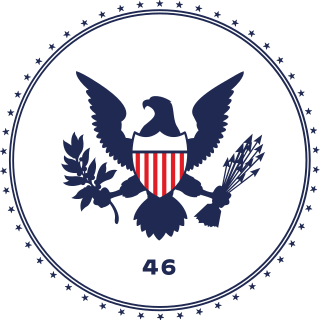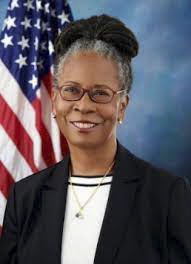ABET, formerly known as the Accreditation Board for Engineering and Technology, Inc. (ABET), is a non-governmental organization that accredits post-secondary education programs in engineering, engineering technology, computing, and applied and natural sciences.
The Early Childhood Education Act is the name of various landmark laws passed by the United States Congress outlining federal programs and funding for childhood education from pre-school through kindergarten. The first such act was introduced in the United States House of Representatives by Congresswoman Patsy Mink of Hawaiʻi in the 1960s. The theory behind the act is that the years before a child reaches kindergarten are the most critical to influence learning. Many children do not have access to early education before entering kindergarten. The goal of the act is to provide a comprehensive set of services for children from birth until they enter kindergarten.
The National Council of Examiners for Engineering and Surveying (NCEES) is an American non-profit organization dedicated to advancing professional licensure for engineers and surveyors. The Council’s members are the engineering and surveying licensure boards from all 50 U.S. states, the District of Columbia, Guam, Northern Mariana Islands, Puerto Rico and the U.S. Virgin Islands. These boards are divided into four geographic zones: Central, Northeast, Southern, Western. It is headquartered in Greenville, South Carolina.

John Choon Yoo is a South Korean-born American legal scholar and former government official who serves as the Emanuel S. Heller Professor of Law at the University of California, Berkeley. Yoo became known for his legal opinions concerning executive power, warrantless wiretapping, and the Geneva Conventions while serving in the George W. Bush administration, during which he was the author of the controversial "Torture Memos" in the War on Terror.
The National Center for Education Statistics (NCES) is the part of the United States Department of Education's Institute of Education Sciences (IES) that collects, analyzes, and publishes statistics on education and public school district finance information in the United States. It also conducts international comparisons of education statistics and provides leadership in developing and promoting the use of standardized terminology and definitions for the collection of those statistics. NCES is a principal agency of the U.S. Federal Statistical System.
The President's Committee on the Arts and the Humanities (PCAH) is an advisory committee to the President of the United States on cultural issues. It works directly with the White House and the three primary cultural agencies: the National Endowment for the Arts (NEA), National Endowment for the Humanities (NEH), and the Institute of Museum and Library Services (IMLS), as well as other federal partners and the private sector, to advance wide-ranging policy objectives in the arts and humanities. These include considerations for how the arts and humanities sectors can positively impact community well-being, economic development, public health, education, civic engagement, and climate change across the United States.

The National Assessment of Educational Progress (NAEP) is the largest continuing and nationally representative assessment of what U.S. students know and can do in various subjects. NAEP is a congressionally mandated project administered by the National Center for Education Statistics (NCES), within the Institute of Education Sciences (IES) of the United States Department of Education. The first national administration of NAEP occurred in 1969. The National Assessment Governing Board (NAGB) is an independent, bipartisan board that sets policy for NAEP and is responsible for developing the framework and test specifications.The National Assessment Governing Board, whose members are appointed by the U.S. Secretary of Education, includes governors, state legislators, local and state school officials, educators, business representatives, and members of the general public. Congress created the 26-member Governing Board in 1988.

The President's Council of Advisors on Science and Technology (PCAST) is a council, chartered in each administration with a broad mandate to advise the president of the United States on science and technology. The current PCAST was established by Executive Order 13226 on September 30, 2001, by George W. Bush, was re-chartered by Barack Obama's April 21, 2010, Executive Order 13539, by Donald Trump's October 22, 2019, Executive Order 13895, and by Joe Biden's February 1, 2021, Executive Order 14007.
The National Center on Education and the Economy (NCEE) is an American not-for-profit education research, advocacy, and educator professional learning organization based in Washington, DC, that first formed in 1988 as the Carnegie Forum on Education and the Economy.
The Coweta County School District is the primary education system in Coweta County, Georgia, United States. Its headquarters are an antebellum building on Jackson Street at Sprayberry Road in Newnan, Georgia. Coweta County is the 9th-fastest-growing county in Georgia and the 26th-fastest-growing in the country. The school system has grown from 9,210 students in 1984 to over 22,000 students in 2007.

Bruce Davey Benson is a United States businessman and educational administrator, who served as the 22nd president of the University of Colorado (CU) from March 2008 to July 1, 2019.

Brett P. Giroir is an American pediatrician. He was formerly the U.S. assistant secretary for health, a four-star admiral in the U.S. Public Health Service Commissioned Corps and an acting Food and Drug Administration commissioner.

Philip H. Rosenfelt is an American lawyer and civil servant who served as the acting United States Secretary of Education from January 20, 2021 to March 2, 2021. He served in this same position under the Trump administration prior to the Senate confirming Betsy DeVos.
Bridget Terry Long is the 12th Dean of the Harvard Graduate School of Education, and the Saris Professor of Education and Economics. She is an economist whose research focuses on college access and success. Long is a Faculty Research Associate at the National Bureau of Economic Research and a member of the National Academy of Education.

Miguel Angel Cardona is an American educator and is currently serving as the twelfth United States secretary of education under President Joe Biden since 2021. A member of the Democratic Party, he was confirmed by the U.S. Senate by a vote of 64–33 on March 1, 2021. Cardona previously served as commissioner of the Connecticut State Department of Education from 2019 to 2021.
Carol McDonald Connor was an educational psychologist known for her research contributions to the field of early literacy development in diverse learners, in particular for work on individualized student instruction interventions and the lattice model of reading development. She held the position of Chancellor's Faculty and Equity Advisor in the School of Education at the University of California, Irvine.

Joe Biden assumed office as President of the United States on January 20, 2021. The president has the authority to nominate members of his Cabinet to the United States Senate for confirmation under the Appointments Clause of the United States Constitution.
The National Eligibility Entrance Test (Postgraduate) (or NEET (PG)) is a qualifying and ranking examination in India, for students who wish to study various postgraduate Doctor of Medicine (MD), Master of Surgery (MS), Diplomate of National Board (DNB), Doctorate of National Board (direct 6 years course in the field of Neurosurgery, Cardiothoracic Vascular Surgery, Plastic Surgery and Pediatric Surgery) and diploma courses, in government or private medical colleges in the country. This exam replaced All India Post Graduate Medical Entrance Examination (AIPGMEE). The exam is conducted by the National Board of Examinations (NBE). The counselling and seat allotment is conducted by Directorate General of Health Services (DGHS).

The COVID-19 Advisory Board was announced in November 2020 by President-elect of the United States Joe Biden as part of his presidential transition. It was co-chaired by physicians David A. Kessler, Marcella Nunez-Smith, and Vivek Murthy and comprises 13 health experts. The board was then succeeded by the White House COVID-19 Response Team upon Biden's presidency in January 2021.

Kilolo Kijakazi is an American academic who served as acting commissioner of the Social Security Administration from 2021 to 2023. She was previously appointed deputy commissioner for retirement and disability policy in January 2021, before taking on the top position following Andrew Saul's dismissal on July 9, 2021.











